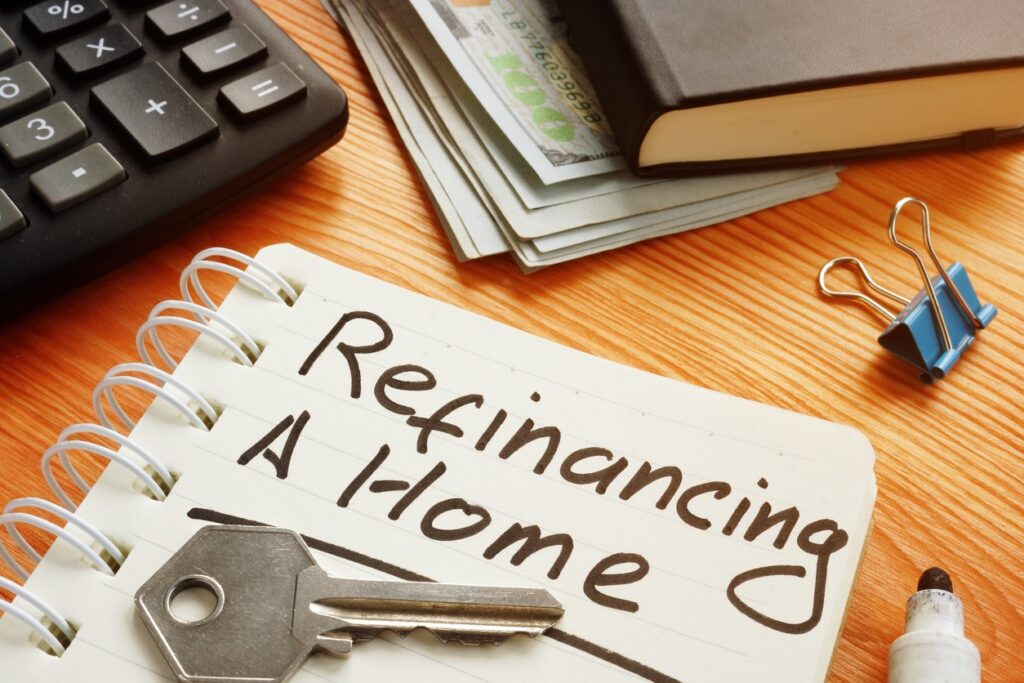At some point during the years, your mortgage term will end and signal how you might want to handle paying your mortgage from that point on.
For some, it may mean considering mortgage renewal or mortgage refinancing. It allows the homeowner to choose mortgage conditions that will better your financial situation and goals as well as reflect your current lifestyle best.
If you have been conflicted about mortgage refinancing, check out what it all entails below and see if it’s the better route for you to take!
What is Mortgage Refinancing?
Refinancing your mortgage involves replacing your existing mortgage with a new one, but with different terms than the one you had previously.
The mortgage refinancing process is no different from the day when you first applied for one. Similarly, your lender will review your finances to spot any risks in qualifying for mortgage refinancing and find the best interest rate for you. The qualifications for mortgage refinancing will involve your lender calculating your loan-to-value ratio by dividing the balance left owing from your previous mortgage and other debts secured by your property into the current value of your property.
Additionally, since it’s a completely new loan, you can deal with a different lender instead of the one you worked with previously when buying your home.
The Implications of Mortgage Refinancing
Depending on where you stand in your finances and your lifestyle, mortgage refinancing can either be a great opportunity or end up being a regretful headache for you.
Advantages of Refinancing
Lower Interest Rate
Mortgage refinancing is a great opportunity to lower your interest rate. If you have been more financially secure or the market is in your favour, you can save lost money with your loan. With a lower interest rate, you can expect to pay less for monthly payments on your mortgage.
Decrease Mortgage Term
If you have the means to pay more than your minimum monthly payments, you can arrange to do so and pay off your mortgage faster than you would have with your old loan. For example, if you started with a 30-year mortgage with 20 years left, you can negotiate it into a 15-year one instead.
Use Home Equity
Home equity is the number of funds available to you reflected by the monthly payments towards your mortgage, balance, debts, and the difference between your property’s market value. When you’re able to access this cash from your home’s appraised value, you can use it to further increase the value of your home through major home renovations. In addition, you can use the money from your home equity for big purchases like unexpected expensive expenses or even help maximise your investments.
Consolidate Any Debt
Life can throw many things at you, resulting in debt. Thankfully, you can help pay off your debts faster through mortgage refinancing lowering your interest rates and access to cash from your home equity. The quickest, most accessible way to pay off your debts would be through home equity, as long as your equity is at least 20%.
Change Rate Type
If you didn’t like how inconsistent the adjustable rate was in your previous mortgage, you could easily replace it with having a fixed-rate mortgage instead. In this way, you know what type of rate works for you best right now.
Disadvantages of Refinancing
Paying Multiple Fees
Part of mortgage refinancing is that you will need to pay appraisal costs, legal, and any possible prepayment charges. All these together can be rather costly, and it only gets more expensive if you consider switching lenders since you would need to pay a discharge fee.
Impact Credit Score
Through mortgage refinancing, you can help pay debts that will help reduce your credit score. However, your lender will do a credit check when going through the process. As a result, you can expect your credit to take a hit. So, if you had been hoping to bring it up fast for whatever reason, it will end up hindering you from doing so
Long Loan Term
The trade-off with having lower interest rates and monthly payments comes with having a longer loan term. You may be paying less, but it can add to your costs. If you were hoping to pay off your mortgage sooner, you might be disappointed that you may not be able to do so.
Less Home Equity
When you opt for a loan where you can have access to your home equity, it can go a number on your home’s equity by reducing it. If you switched to a more adjustable rate, cashing in on your home equity would be a greater financial risk.
A Long Process
The refinancing process is not a quick and easy one. You can expect it to be a long, drawn-out one, ranging between 15 to 45 days. If the loan conditions are not worth waiting for, it’s not worth considering mortgage refinancing.
The end of a mortgage term can feel like you’re at a crossroads. Choosing a whole new mortgage through financing can be appealing as long as it can accommodate and benefit your unique lifestyle and current financial situation.
